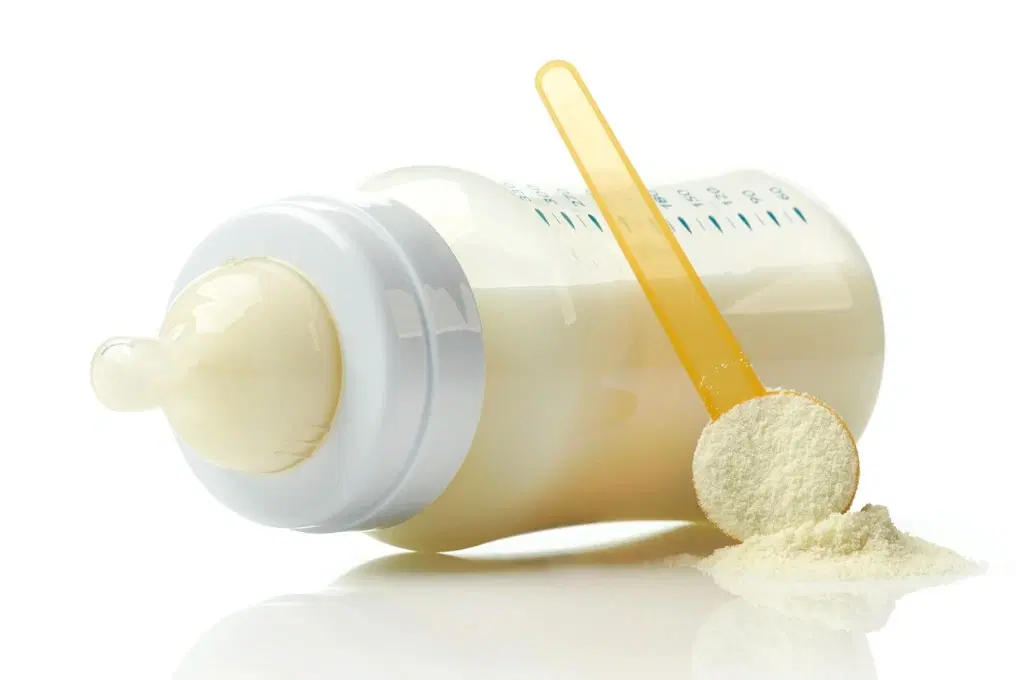The Impact of Breastmilk Substitutes on Child Development and Mortality
6 min read

There is substantial literature on the superiority of breastfeeding to the use of breastmilk substitutes. The benefits conferred by the practice of substantial breastfeeding affect the wellbeing and development of both mother and child. First and foremost, breastfeeding provides protection against early childhood infections, primarily those that affect the gastrointestinal and respiratory systems. It is estimated that 823,000 annual deaths in children younger than 5 could be averted with the adoption of near universal breastfeeding. (1) Nursing a child also has a positive benefit for mothers by reducing the incidence of breast cancer, ovarian cancer, and type 2 diabetes later in life. It is estimated that 98,943 maternal deaths from these three causes can be attributed to the lack of breastfeeding during their lifetime. (2) In addition to the associated mortality and morbidity, some studies indicate that children that are breastfed exclusively in the first 6 months of life achieve cognitive gains equivalent to a 2.62 IQ increase. (3) Despite clear scientific evidence for the superiority of breastfeeding to formula and universal recommendations for its use from the WHO and UNICEF, the global prevalence of exclusive breastfeeding was only 43% in 2015.
The chart below illustrates the number of child deaths attributed to using breastmilk substitutes by geographic region, “based on epidemiological and demographic health surveillance data available for 130 countries” (2).
Methodology and Results
We associate breastmilk substitutes primarily with the costs of elevated mortality and morbidity among children and mothers. While it is a significant ethical challenge to place a dollar value on a human life, there have been numerous approaches to the problem in the academic literature and public policy practice. In modern, developed countries, these estimates of the Value of a Statistical Life (VSL) have ranged from $1 to $10 million. (4) We have adopted a subset of those approaches to arrive at our own universal calculation for the value of a life and consequently a potential life year lost. Besides the cost in lives, the aggregate healthcare costs of treating cases of disease that could be avoided by breastfeeding are an additional $1.1 billion. (2)
The impact of breastfeeding on cognitive gains and potentially higher IQ scores is linked to future income losses, where each point of IQ is equivalent to 1.067% higher earnings. (5) Other studies have estimated the value of this potential cognitive shortfall at $285.4 billion. (2) We believe that the relationship between breastfeeding and increased IQ is an area of greater uncertainty. While the systematic review of the subject demonstrates that some relationship is maintained throughout existing studies, the heterogeneity of study designs raises many questions about the precision of the final results. (3) The underlying studies compare cohorts with different durations (> 1, 4, 6, 8 months) and exclusivity (ever, never, exclusive, predominant) of breastfeeding. They also measure IQ with slightly different tests and at a different mean age of assessment. The results from different study designs find as little as .52 points of IQ difference to as much as 9.1. A more consistent methodology is needed to better assess the causal relationship and the magnitude of the effect. It would also be interesting to test IQ at much later ages to see if the gap persists or whether it reflects transitory developmental delays, potentially associated with childhood morbidity. In the absence of more scientific certainty, we ascribe a minimal effect to the role of breastfeeding on IQ and future income in our model.
Based on our assessment of the associated costs of deaths, healthcare and cognitive development, the negative impact associated with breastmilk substitutes is just under $2 trillion. This impact is apportioned to companies on the basis of their relative share in the global breastmilk substitutes market and then partially transferred to their various supply chain partners.
Limitations and Future Directions
The mortality and morbidity costs associated with the absence of breastfeeding intersect with other potential healthcare interventions. While breastfeeding would alleviate some of the mortality burden so would better availability of clean water, basic healthcare, vaccine dissemination, better nutrition, and cancer therapies. Improvements in global health may further reduce the burden of breastmilk substitutes in the future.
Future studies that substantiate the impact of breastfeeding on IQ at the higher end of the currently reported range would significantly increase the negative value associated with breastmilk substitutes.
Published on April 22, 2022.
References
1. Breastfeeding in the 21st century: epidemiology, mechanisms and lifelong effect. CG, Victoria. s.l. : Lancet, 2016, Vol. 387.
2. The cost of not breastfeeding: global results from a new tool. Walters, Dylan D. s.l. : Health Policy and Planning, 2019, Vol. 34.
3. Breastfeeding and intelligence: a systematic review and meta-analysis. Horta, Bernardo L. s.l. : Acta Paediatrica, 2015, Vol. 104.
4. Income Elasticities and Global Values of a Statistical Life. Viscusi, W. K. and Masterman, C. J. s.l. : Journal of Benefit Cost Analysis, 2017, Vol. 8.
5. The Role of Cognitive Skills in Economic Development. Hanushek, Eric A. 3, s.l. : Journal of Economic Literature, 2008, Vol. 46.
About The Author
Yan Zelener, a Portfolio Manager at Humankind Investments, brings over 15 years of experience in research-driven investment management to the Humankind team. He most recently served as Director of Research at CV Advisors, with previous research and portfolio management roles at Majestic Research, Teleos Management and Willowbridge Associates. He holds a PhD in History from Columbia University and a BS in Computer Science from MIT.
Get the latest posts in your inbox
I agree to the Terms of Use and acknowledge that I have read the Privacy Policy.